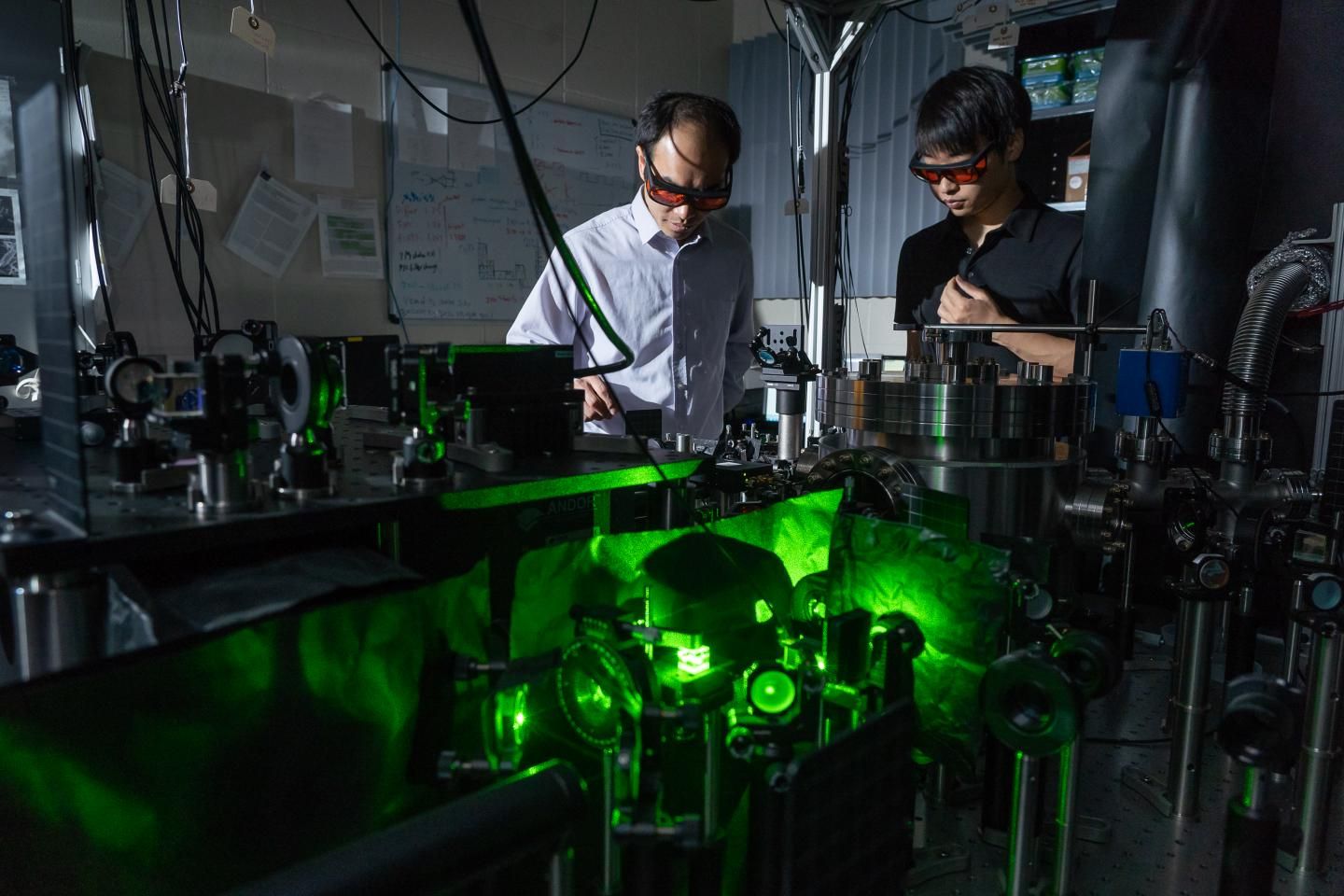
Scientists have created the fastest spinning man-made object in the world: an incredibly small "dumbbell" that can complete more than 60 billion rotations per second, which is around 100,000 times faster than a high-speed dental drill.
The researchers from Purdue University, Peking University, Tsinghua University, and the Collaborative Innovation Center of Quantum Matter in Beijing say that the object will help them to study quantum mechanics—the bizarre physics of the very small—among other applications.
The spinning dumbbell has been described in a study published in the journal Physical Review Letters.
"This study has many applications, including material science," Tongcang Li, an assistant professor of physics and astronomy, and electrical and computer engineering, at Purdue University, said in a statement. "We can study the extreme conditions different materials can survive in."
The tiny dumbbell or nanoparticle is about the size of a virus—measuring about 170 nanometers wide and 320 nanometers long—which the researchers synthesized from silica, a colorless, white chemical compound made up of the elements silicon and oxygen. For reference, one nanometer is a billionth of a meter.
The team, which was led by Li, levitated this nanoparticle in a vacuum using a laser that can either make it spin at unprecedented speeds or vibrate.
When it spins, the dumbbell functions as a rotor, but when it vibrates it acts like an analogue of torsion balance—an instrument used to measure very weak forces. Both of these states could help the scientists to learn about quantum mechanics and the properties of a vacuum.
"People say that there is nothing in vacuum, but in physics, we know it's not really empty," Li said. "There are a lot of virtual particles which may stay for a short time and then disappear. We want to figure out what's really going on there, and that's why we want to make the most sensitive torsion balance."
The next step for the researchers is to conduct experiments involving faster spinning speeds which will enable more precise tests of fundamental physics theories, including exotic forms of friction in vacuums.
Quantum mechanics describes a number of unusual phenomena which occur only at the scale of the very small, such as quantum entanglement.
This is when pairs, or groups, of particles interact with each other in such a way that they defy the classical laws of physics. One object can seemingly influence another simultaneously, even if they have no direct physical connection and are separated by vast distances—such as the length of the universe.
Uncommon Knowledge
Newsweek is committed to challenging conventional wisdom and finding connections in the search for common ground.
Newsweek is committed to challenging conventional wisdom and finding connections in the search for common ground.
About the writer
Aristos is a Newsweek science reporter with the London, U.K., bureau. He reports on science and health topics, including; animal, ... Read more
To read how Newsweek uses AI as a newsroom tool, Click here.








